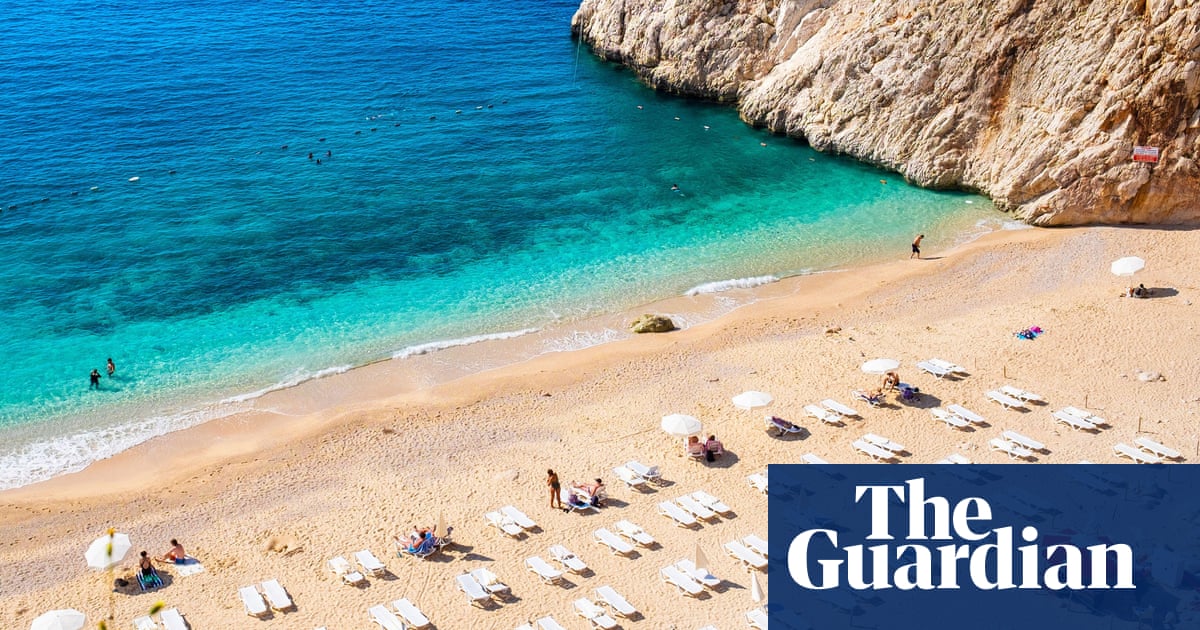
A post on Instagram showcases a woman’s silhouette in tight blue leggings, with the focus on her lower body dominating the frame. The caption reads, “Enticingly attractive curves ahead… Ready to captivate attention and captivate hearts?” This post originates from a company offering Britons the opportunity to undergo a Brazilian butt lift while indulging in a luxurious vacation abroad.
This advertisement is just one of many circulating on social media platforms, enticing UK residents with cosmetic surgery tourism packages in Turkey. Hair transplants, gastric band procedures, and Brazilian butt lifts (BBLs), a technique that involves transferring fat from one area of the body to the buttocks, are all part of these packages. However, this trend has raised safety concerns among medical professionals in Britain.
An analysis by The Guardian of the Facebook ad library revealed nearly 2,700 advertisements promoting BBLs alone since May 2022. Many of these ads follow a similar pattern by marketing the procedures as part of a holiday package.
The surge in such advertisements has prompted the Advertising Standards Authority (ASA) to issue a cautionary notice to overseas cosmetic providers, outlining stringent regulations regarding their promotions. The watchdog agency noted a rise in ads targeting UK consumers for these services, with numerous instances of violations of advertising standards.
A lack of social care resources, a scarcity of healthcare workers, and the effects of the coronavirus epidemic have all put a strain on the United Kingdom’s healthcare system. This strain has led to a growing number of individuals opting for private healthcare, with some paying substantial amounts for procedures such as cataract removal and hip replacements, driven by frustration over NHS waiting times.
In response to these challenges, a considerable number of UK residents are choosing to seek medical treatment abroad. According to the Office for National Statistics, the number of UK residents traveling overseas for medical care surged to 248,000 in 2019 from 120,000 in 2015, with Turkey emerging as the top destination. In 2022, Turkey welcomed 1.2 million individuals for medical procedures, contributing an estimated £2 billion to the country annually through medical tourism.
The promotion of idealized beauty standards via social media and reality television shows like Love Island contributes to the increased demand for cosmetic procedures. Many individuals seek aesthetic enhancements at more affordable prices than those available in the UK. For instance, searches for “Turkey teeth,” a term referring to dental veneers obtained during cosmetic trips to Turkey, spiked by 10,000% overnight during the airing of Love Island. This trend underscores the impact of media and popular culture on shaping beauty ideals.
While advertisements for cosmetic procedures abroad are becoming increasingly prevalent on platforms like Instagram and Facebook, experts have expressed concerns about the associated risks. Nora Nugent, the vice-president of the British Association of Aesthetic Plastic Surgeons, emphasized the importance of not trivializing or glamorizing these procedures. She highlighted the need for responsible advertising that does not downplay the risks or make unrealistic promises to consumers.
Regulatory bodies like the ASA and the Committee of Advertising Practice (CAP) are actively monitoring and addressing irresponsible ads promoting cosmetic surgery tourism. Shahriar Coupal, the director of CAP, stressed the necessity of halting the proliferation of rule-breaking ads targeting UK consumers.
The narrative also delves into specific instances of questionable advertisements, such as those from Clinichub and Dr. Süleyman Özer, which promote various cosmetic procedures in Turkey as part of luxurious packages. These ads often tout discounts and emphasize the transformative experience of undergoing surgery abroad.
In light of the risks associated with cosmetic surgery tourism, health minister Maria Caulfield underscored the importance of cracking down on irresponsible ads that target vulnerable individuals. The unfortunate deaths of British nationals while undergoing medical tourism in Turkey should serve as a sobering warning of the risks involved. BBLs, in particular, carry a high risk, with at least one fatality per 4,000 procedures.
Despite regulatory efforts to address these concerns, challenges remain in enforcing actions against overseas companies advertising cosmetic procedures to UK consumers. The pervasive influence of social media on decision-making processes related to cosmetic surgery, especially among younger individuals, underscores the need for greater awareness and responsible advertising practices in the industry.
